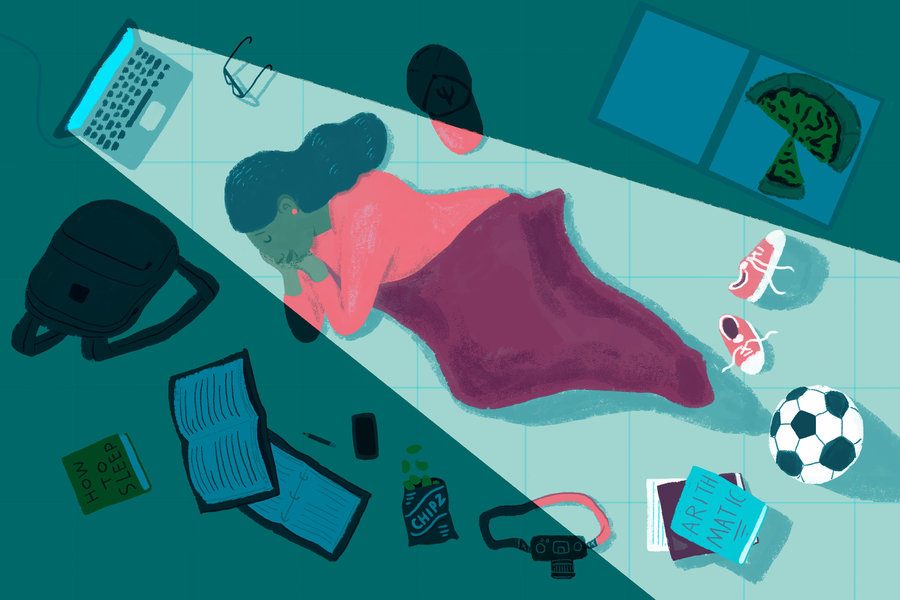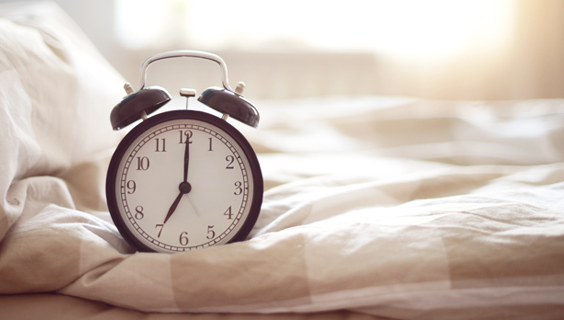One of the most common complaints I hear, after “I don’t understand anything the professor says” and “Crossroads sucks,” is “I’m so tired. I got X hours of sleep last night.” Given the extraordinarily busy lives of the college student, this should be no surprise. Even as I type away in the wee hours of the morning, I am sacrificing precious sleep time for the betterment of our school. But there’s a way out of this pit of pineal confusion, this labyrinth of late-nights. Here are some simple tips to maximize our shuteye time:
Don’t Procrastinate (Too Much)
I’m sure this seems pretty obvious, but the best advice in life is usually something straightforward that we overlook. People often complain about how they procrastinate all the time and pull all-nighters every week, but they don’t use that as negative feedback to keep their bad habits in check. Well, here’s some negative feedback: if you procrastinate, you will get less sleep, you will learn less in class, and you will probably be grumpy and irritable. Who knows, that cute girl in Chem class might start talking to you, only to be greeted by a sleepless grouch. Some good ways to avoid procrastination are organizing your schedule better (I suggest Google Calendar) and figuring out the best study conditions for you. The best conditions vary from person to person, so you’ll have to figure out what works yourself. But prolonged procrastination has got to go.
Nap Wisely
There are two main ways to nap: there’s the “30-minute power nap,” and there’s the “3-hour prolonged nap.” While napping in general will restore energy and refresh you, napping too long will disrupt your sleep schedule, which you’re (presumably) trying to fix if you’re reading this. Short naps will give you a recharge without affecting your sleep. The best time to nap is generally midday or before when you “crash.” I usually crash around 3 to 4, so if I’m not in class, I will try to nap before this time to make sure I make it until night.
Establish a Sleep-Time Routine
Habits are a powerful thing: like back in high school, we all were able to wake up at 6 in the morning every day. Sure, it was rough, but after enough repetition and parental force, we got used to it. If you make a habit of doing certain sleep-conducive things, they will come naturally to you, and you will find yourself falling asleep much easier and sleeping longer. Things like drinking a glass of milk, reading a book for enjoyment, reading a book to drowse you, listening to relaxing music, listening to a boring lecture, or anything else that gets you to fall asleep easier (regardless of how) will work. Whatever you do, however, do NOT rely on any medication (OTC or otherwise) to put yourself to sleep unless you’ve talked to a doctor about this issue. There are much healthier and more natural ways of inducing shut-eye. This brings me to my final suggestion…
Try Meditation: Because We All Want to Be Monks Sometimes
This is the most important piece of advice I have to offer on this subject. Ignoring time constraints, the main reason why people don’t get enough sleep is because of some mental block, whether it be stress, anxiety, depression, etc. I’m not a psychologist or psychiatrist, but meditation is hands-down one of the best way to clear your mind and prepare for sleep. And it’s not just for sleep. It helps with basically everything. We all have seen the stereotypical monks doing their meditation, but what’s considered meditation varies widely. There’re more comprehensive guides online, but here’s meditation in a nutshell. You clear your mind of all thoughts and relax. There are many ways to do this, but my favorite is to lie on my bed, acknowledge the points of contact between my body and the bed, and focus solely on feeling the contact. Depending on your spiritual/religious views, meditation can have more significance, and that’s fine. But as an irreligious individual, I can attest to the fact that you do NOT need to be spiritual to meditate. It’s merely a way to clear your mind of baggage that inhibits you from sleeping. I should also add that meditation is great provoking introspective thought and furthering your personal philosophical goals, but that’s the subject for another blog (*wink wink*).
In summary, get on top of your work, take short naps, get in the habit of doing sleep-conducive activities before bed, and meditate. Remember: sleep is really important, even if you can persist on a diet of ramen and red bull.
Article by Billal Ahmed
Feature Image Source: NPR
























